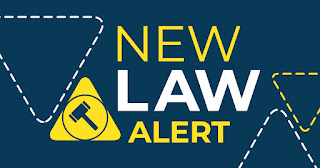New York State's Department of Health issued new details for Governor Hochul's statewide mandate requiring face mask/covering at all indoor public places effective December 13, 2021 until January 15, 2022 (State will re-evaluate after this date), for all persons, over age two and able to medically tolerate a face covering/mask, regardless of vaccination status. Indoor public places are any indoor space that is not a private residence.
The mandate does not apply to indoor public areas that require proof of vaccination as a condition of entry. However, a business cannot "mix and match" i.e. permit individuals who show proof of vaccination to enter mask free while permitting those who do not present proof of vaccination to enter wearing a mask. Either no one is permitted entry that cannot provide proof of vaccination or everyone must wear a mask (whether vaccinated or not).
For example, in a law office where everyone must show proof of vaccination to enter (employees, clients, vendors, etc.) masks are not required. However, a retail store that does not require proof of vaccination to enter is required to ensure that all individuals present at the store (employees, customers, etc.) wear face coverings regardless of vaccination status.
Per the Department of Health, the following institutions must ensure everyone over the age of two, unless subject to applicable CDC exceptions, is masked (there is no proof of vaccination option): correctional facilities, detention centers, homeless shelters, transportation hubs, schools.
The new requirements are pursuant to New York State administrative rule 10 NYCRR 2.60. A violation of any of these requirements is subject to a fine of $1,000 for each violation. Businesses should, thus, immediately ensure compliance or face potential crippling fines.









